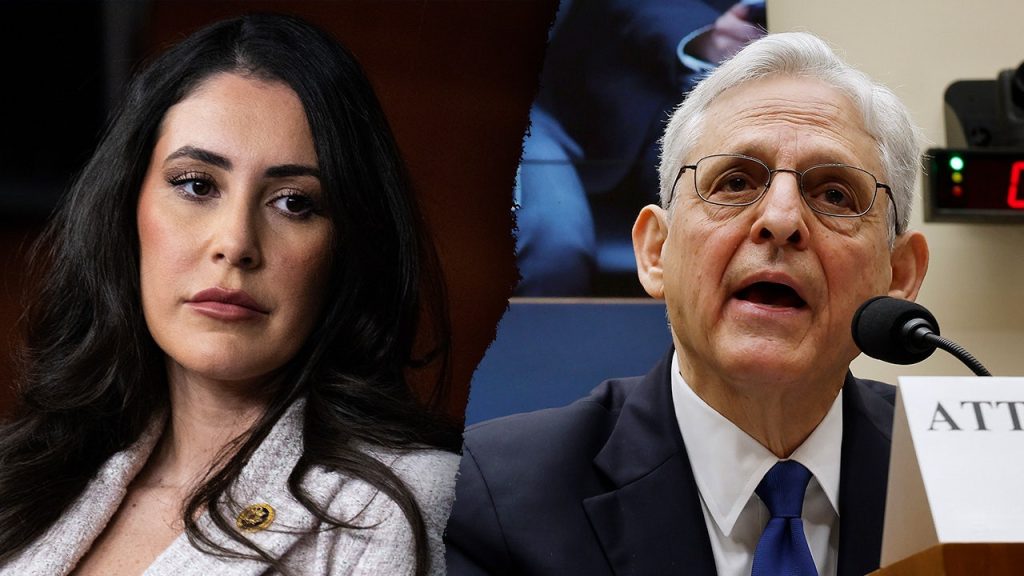Rep. Anna Paulina Luna, a Republican from Florida, is pushing for a vote to have the House Sergeant-at-Arms arrest Attorney General Merrick Garland after the Department of Justice failed to act on a contempt resolution passed by the GOP majority. Luna argues that the DOJ’s refusal to comply with the subpoena undermines Congress, and the only way to ensure compliance is through inherent contempt. This would involve Garland standing trial before the House and potentially being detained by the House Sergeant-at-Arms. House Republican leaders are seeking audio recordings of special counsel Robert Hur’s interviews with President Biden, which Garland has refused to turn over.
Inherent contempt differs from criminal contempt in that it allows Congress to try individuals before the House and potentially detain them. Luna believes that using inherent contempt is necessary to demonstrate the seriousness of non-compliance with congressional subpoenas. Democrats have dismissed the request for audio recordings as a partisan attempt to politicize the DOJ, while the DOJ has cited executive privilege claims from President Biden as the reason for not prosecuting Garland. Luna argues that allowing the DOJ to decide whether or not to enforce congressional subpoenas would weaken Congress’s ability to legislate effectively.
Congress last invoked inherent contempt in 1934, resulting in a lawyer receiving a 10-day jail sentence for not complying with a Senate subpoena. Luna’s resolution to hold Garland in inherent contempt will need to be deemed “privileged” in order to force a vote. It is unclear if the effort will succeed, as it is unlikely to receive support from Democrats and may be tabled by a few Republicans, ultimately killing it before a House-wide vote. The previous vote on holding Garland in contempt received support from every Republican except for one, who was concerned about politicizing the justice system.
Luna argues that the legislative branch’s integrity and independence are at stake, and that action must be taken to protect Congress’s ability to fulfill its constitutional duties. She contends that using inherent contempt is necessary to show that non-compliance with congressional subpoenas will have consequences. If the resolution is passed, Garland could be detained by the House Sergeant-at-Arms after standing trial before the House. The potential use of inherent contempt has raised questions about the balance of power between Congress and the executive branch, particularly in cases involving executive privilege claims.
Luna’s push for a vote on holding Garland in inherent contempt highlights the ongoing tensions between Congress and the Department of Justice over compliance with congressional subpoenas. The DOJ’s refusal to turn over audio recordings of interviews with President Biden has sparked a debate over the extent of executive privilege and the role of Congress in overseeing the executive branch. The resolution to hold Garland in inherent contempt may face opposition from Democrats and some Republicans, but it underscores the ongoing struggle over congressional oversight and the enforcement of subpoenas within the federal government.













